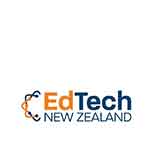Susana Tomaz | STEAM Coordinator Westlake Girls High School | Across School Lead – Pupuke Kāhui Ako at Ministry of Education of New Zealand
An Educators’ Perspective on Connected Ako: Digital and Data for Learning
New Zealand, we are embarking on an exciting 10-year strategy called Connected Ako: Digital and Data for Learning. The purpose of this strategy is to guide the digital and data direction of New Zealand Government Education Agencies.
I have been eagerly waiting for its publication and I am thrilled to share my perspective as an educator on this initiative now that I had a chance to read it. The diagram below provides a glance over the strategy.
Connected Ako envisions a future where learners and educators not only survive, but thrive in the digital world. This vision resonates deeply with me but it is quite ambitious even for a 10-year plan. In my role as a STEAM coordinator and Across School Leader, I have been actively involved in developing teacher capabilities and leading the co-design of innovative pedagogies that leverage emerging technologies to equip learners/ākonga with the necessary skills to navigate an increasingly digital society. The strategy tackles the current barriers that we face in school communities. However, I would like to focus on the two major ones that I am currently addressing as part of my two roles:
The Power of Partnerships: Bridging the Gap and Building Capability
As mentioned in my first blog we need an ecosystem approach so education can keep up with the accelerated digitalisation of the world. One of the focuses of the strategy that I am particularly excited about is on building partnerships with community stakeholders such as businesses and industry. Formalising these partnerships is a game-changer for our education system. This collaboration holds immense promise in bridging the digital divide and fostering opportunities for learners to engage with real-world applications of technology. Such partnerships can definitely tackle the barrier around teacher capability by unlocking resources and expertise that can enhance the overall quality of education by upskilling teachers while preparing students for the challenges and opportunities of the future job market.
However, given the burnout experienced by frontline teachers, the ongoing implementation of a new curriculum refresh, and the challenges posed by this new AI era to traditional assessment methods, I must admit I am concerned about how this additional strategy will be received by our educators. I am curious to see how the action plan will consider these factors and prioritise the work, taking into account the need to support teachers who may already be feeling overwhelmed with yet another change. Ensuring adequate support and resources for teachers during this process will be crucial to the success of the initiative.
Equitable Access to Technology: Empowering Every Learner
Equity is another massive barrier being addressed in the strategy, and it resonates deeply with my commitment and values in education – being able to empower learners from all backgrounds and abilities to reach their full potential. However, I am aware that achieving equitable access is not without challenges.
I am eagerly looking forward to seeing the action plans and timelines that Connected Ako will lay out and how it will involve consultation and collaboration with educators and EdTech experts. These will be pivotal in ensuring the successful implementation of the strategy. Engagement with educators will ensure that the proposed strategies align with the needs and challenges faced in real-world educational settings. Additionally, collaborating with EdTech professionals will provide valuable guidance on how to leverage technology effectively for improved learning outcomes and student engagement. An ecosystem approach will contribute to the overall effectiveness and sustainability of the Connected Ako initiative.
The full Connected Ako document strategy can be found here. You can also access the EdTechNZ: Connected Ako: The Digital Strategy Refresh webinar here.
If you were unable to make it, you can view the recording here.
More information on the curriculum refresh can be found here.






